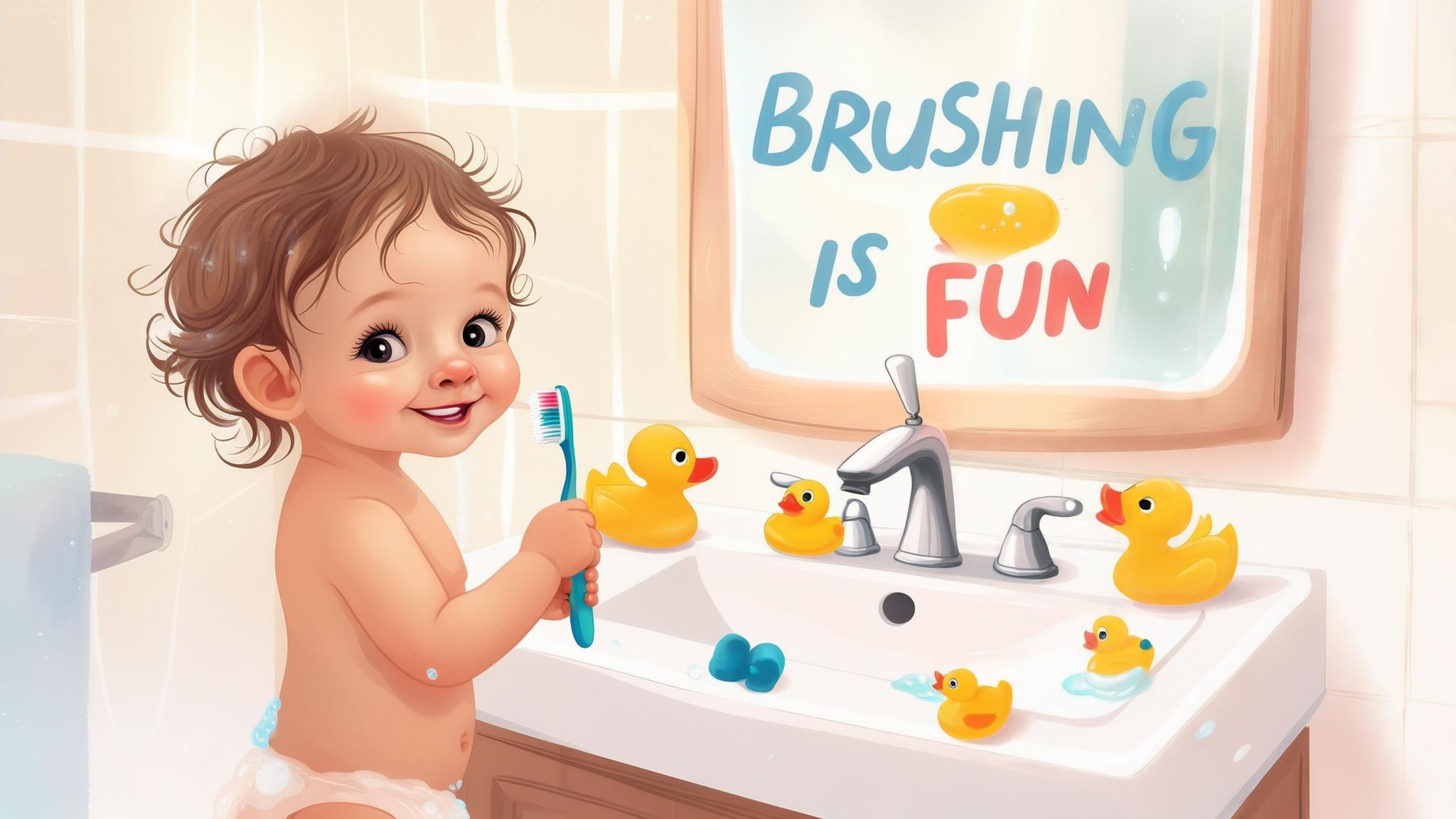Importance of Dental Hygiene in Toddlers
Establishing good dental hygiene early in life is crucial for toddlers. Not only does it set the foundation for a lifetime of healthy habits, but it also prevents common dental issues like cavities and tooth decay. However, many parents find brushing their toddler's teeth to be a challenging task. This article aims to provide practical tips to make tooth brushing easier and more enjoyable for both parents and toddlers.
Understanding Toddler Dental Development
Timeline of Tooth Eruption in Toddlers
Toddlers typically begin to develop primary teeth, also known as baby teeth, around six months of age. By the age of three, most children have a full set of 20 primary teeth. Early dental care is important because these teeth hold space for permanent teeth and help in the development of clear speech and proper chewing.
Common Dental Issues in Toddlers
One of the most common dental issues in toddlers is cavities, which can occur when teeth are not cleaned properly. Establishing good oral hygiene habits early can prevent tooth decay and promote healthier teeth as they grow.
Preparing for Tooth Brushing
Choosing the Right Toothbrush
Select a toothbrush with soft bristles and a small head to fit comfortably in a toddler's mouth. Fun designs or favorite cartoon characters can make brushing more engaging for your child.
Selecting Toothpaste
Consider using a fluoride toothpaste to help prevent cavities, but ensure you only use a pea-sized amount to minimize ingestion. Non-fluoride options are available if you prefer.
Setting a Routine
Establish a consistent brushing schedule, ideally twice a day—once in the morning and once before bed. Consistency helps toddlers understand the importance of regular dental care.
Tips for Making Brushing Easier
Creating a Positive Environment
Choose a comfortable location for brushing, such as the bathroom, where your toddler can see themselves in a mirror. This visual engagement can make the process more interesting.
Making It Fun
Incorporate songs or games during brushing time. Use timers or apps designed for kids to make brushing feel like a fun activity rather than a chore.
Involving Toddlers in the Process
Let your child pick out their toothbrush or toothpaste. Encourage them to mimic brushing, even if it means letting them brush your teeth first!
Demonstrating Proper Technique
Show your child how to brush effectively by using a stuffed animal or doll. Demonstrating proper technique can help them understand the process better.
Addressing Common Challenges
Dealing with Resistance
Understand that reluctance is normal. Encourage cooperation by being patient and turning brushing into a game or story.
Managing Tantrums and Anxiety
Calm a distressed toddler by staying calm yourself. Consistency and patience are key. Try using soothing music or a comforting toy to ease anxiety.
Encouraging Independence
Gradually Allowing Toddlers to Brush
As your child grows, encourage them to try brushing on their own while you supervise. Balance independence with guidance to ensure they learn the correct technique.
Setting Achievable Goals
Set small, achievable goals for your toddler, such as brushing for a full minute. Celebrate their success to boost their confidence.
Importance of Regular Dental Check-ups
Establishing a Dental Care Routine
Regular dental visits are essential to maintaining good oral health. Schedule your toddler's first dental visit by their first birthday.
Role of the Dentist
Dentists play a crucial role in promoting healthy habits and can offer personalized advice for your child's dental care.
Conclusion
Recap the importance of early dental hygiene and encourage parents to remain patient and persistent. Fostering a positive attitude towards dental care in toddlers can lead to lifelong healthy habits.
Additional Resources
- American Dental Association
- HealthyChildren.org
- Local pediatric dental offices
Call to Action
Share your own tips and experiences in the comments below. If you have specific concerns, don't hesitate to seek professional advice from a pediatric dentist.

